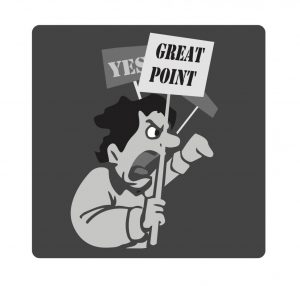We Must Change Social Activism on Campus
April 27, 2017

Whitman has a respectable tradition of social justice and activism. As Whitties, we aspire to create the most comfortable and accepting environment for our fellow students. It is that ability to change that makes our community so cohesive and empathetic. This willingness to put our opinions up for criticism is a compelling trait, but I feel it is undercut by the culture of Whitman itself.
Political activism is a valuable aspect of Whitman’s culture, certainly, but I’m not sure it belongs on campus. There is a large and powerful political consensus at Whitman. ‘The echo chamber,’ the ‘liberal bubble’–whatever you want to call it–dictates a lion’s share of the political dialogue on campus. It seems that most Whitties acknowledge the existence of the bubble, and some even seek to dismantle it. Regardless of whether this bubble is good or bad, it does affect the pragmatic nature of social activism and stunts its ability to spur change. The causes themselves that promote said activism are all beyond valid, but vocalizing those opinions and stances in an environment that shares your opinion is unproductive. And there we find the problem. In a community that is tremendously welcoming to activism but also politically uniform, said activism is unnecessary. That does not mean that the cause of the activism is invalid–it merely means you need to expand your field of view.
Whitman, in its progressive liberal political stance, is juxtaposed against the more conservative community in and around Walla Walla. It is because Walla Walla doesn’t share Whittie’s beliefs that ‘the bubble’ is a bubble. To most effectively pursue social change, it would be more productive to go into the Walla Walla community since, unlike Whitman, it is varied in its beliefs.
This is not an indictment of the social activism of Whitman students, as they truly address areas in need of change. Instead, it is an endorsement of the spirit of activism, and a recommendation of more effective measures.





Sophia • Apr 30, 2017 at 7:02 pm
For starters, I think Whitman should bar Greek organizations and expel all greek-affiliated students